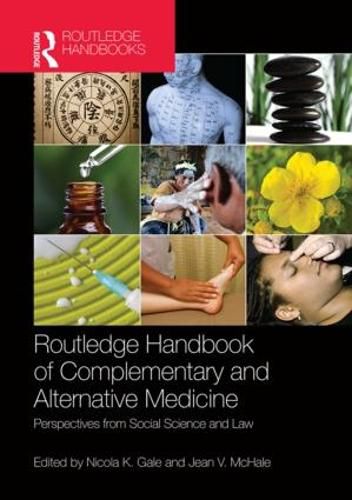Readings Newsletter
Become a Readings Member to make your shopping experience even easier.
Sign in or sign up for free!
You’re not far away from qualifying for FREE standard shipping within Australia
You’ve qualified for FREE standard shipping within Australia
The cart is loading…






The provision and use of traditional, complementary and alternative medicine (CAM) has been growing globally over the last 40 years. As CAM develops alongside - and sometimes integrates with - conventional medicine, this handbook provides the first major overview of its regulation and professionalization from social science and legal perspectives.
The Routledge Handbook of Complementary and Alternative Medicine draws on historical and international comparative research to provide a rigorous and thematic examination of the field. It argues that many popular and policy debates are stuck in a polarized and largely asocial discourse, and that interdisciplinary social science perspectives, theorising diversity in the field, provide a much more robust evidence base for policy and practice in the field. Divided into four sections, the handbook covers:
analytical frameworks
power, professions and health spaces
risk and regulation
perspectives for the future.
This important volume will interest social science and legal scholars researching complementary and alternative medicine, professional identify and health care regulation, as well as historians and health policymakers and regulators.
$9.00 standard shipping within Australia
FREE standard shipping within Australia for orders over $100.00
Express & International shipping calculated at checkout
The provision and use of traditional, complementary and alternative medicine (CAM) has been growing globally over the last 40 years. As CAM develops alongside - and sometimes integrates with - conventional medicine, this handbook provides the first major overview of its regulation and professionalization from social science and legal perspectives.
The Routledge Handbook of Complementary and Alternative Medicine draws on historical and international comparative research to provide a rigorous and thematic examination of the field. It argues that many popular and policy debates are stuck in a polarized and largely asocial discourse, and that interdisciplinary social science perspectives, theorising diversity in the field, provide a much more robust evidence base for policy and practice in the field. Divided into four sections, the handbook covers:
analytical frameworks
power, professions and health spaces
risk and regulation
perspectives for the future.
This important volume will interest social science and legal scholars researching complementary and alternative medicine, professional identify and health care regulation, as well as historians and health policymakers and regulators.